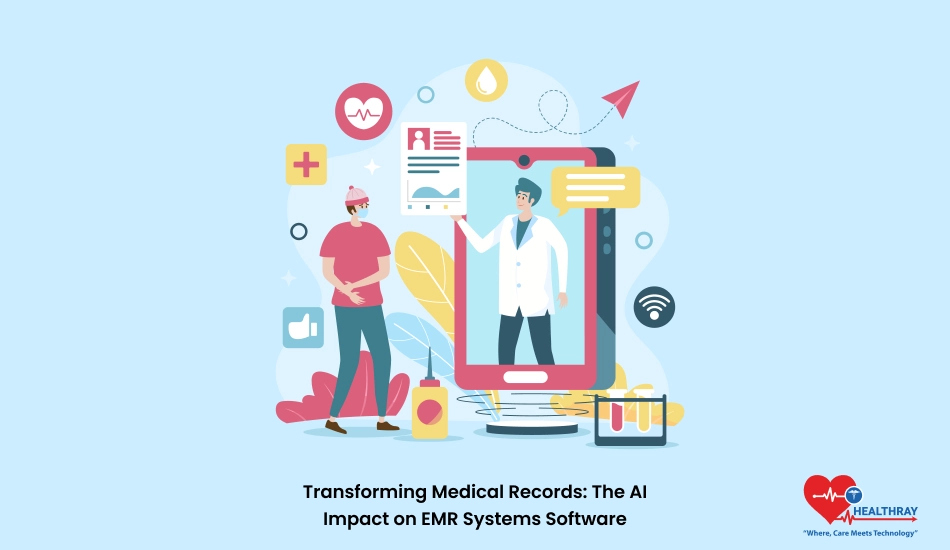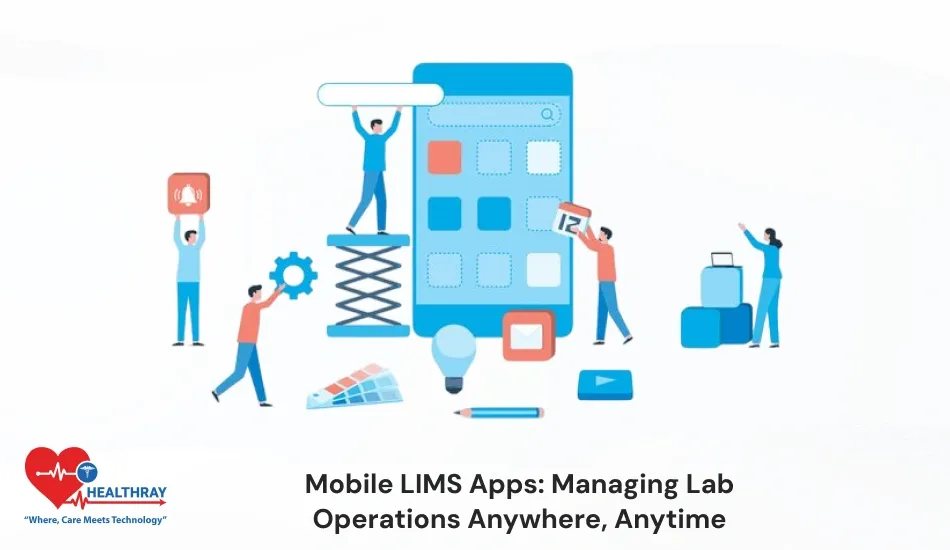The way medical records are managed has come a long way, but challenges still exist. AI is emerging as a game-changer for Electronic Medical Record (EMR) systems, reshaping how healthcare professionals handle patient data.
From reducing administrative burdens to enhancing clinical decision-making, AI-powered tools are making EMR Softwares smarter and more efficient. But how exactly is this transformation happening? This post dives into the key benefits, challenges, real-world applications, and future trends of AI in EMR systems.
Benefits of AI in EMR Systems
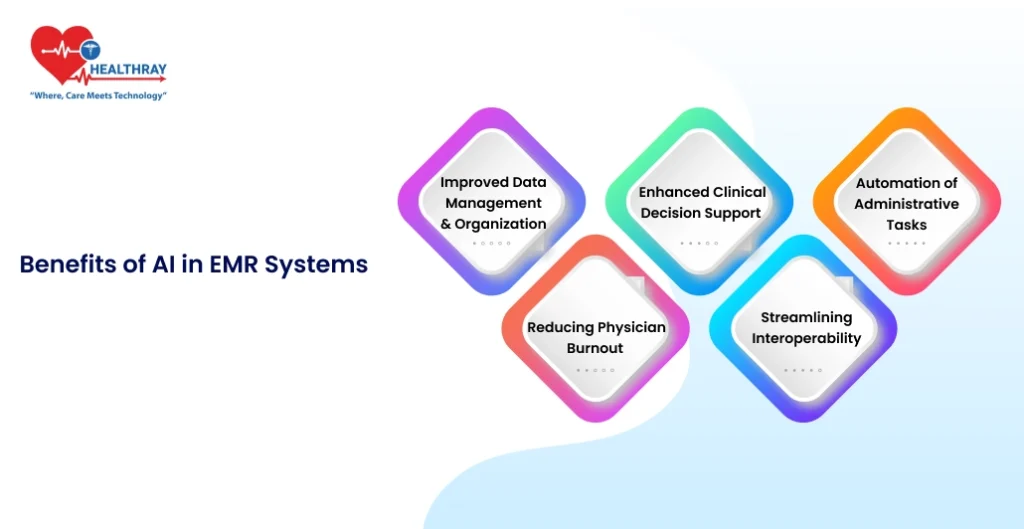
AI is revolutionizing EMR systems in ways that make patient care more efficient and healthcare operations smoother. Let’s break down the key benefits:
Improved Data Management and Organization
Medical data grows every day, and AI helps organize it in meaningful ways. Algorithms analyze patient records to identify patterns, categorize information, and highlight critical details for clinicians. This reduces the time healthcare professionals spend searching for data and ensures nothing important is missed.
Enhanced Clinical Decision Support
AI tools provide valuable support to doctors and healthcare teams by offering insights based on real-time data analysis. These tools can predict potential complications, suggest treatment options, and alert professionals to anomalies in patient records. This ensures more accurate diagnoses and better treatment plans.
Automation of Administrative Tasks
One of the biggest frustrations for healthcare professionals is the amount of time spent on paperwork. AI automates tasks like updating records, scheduling, and billing, allowing doctors and nurses to focus more on patient care. It also helps reduce errors, which can improve outcomes and save costs.
Reducing Physician Burnout
By automating repetitive tasks, AI eases the workload on doctors and other healthcare providers. Features like voice-to-text transcription for notes and automatic data entry save hours of administrative time, letting healthcare workers focus on what matters most: their patients.
Streamlining Interoperability
AI improves how different EMR systems communicate with one another. Seamless data sharing between systems ensures that healthcare providers have access to accurate and up-to-date patient information, even when working across multiple facilities.
Challenges and Considerations in AI Integration for EMR Systems
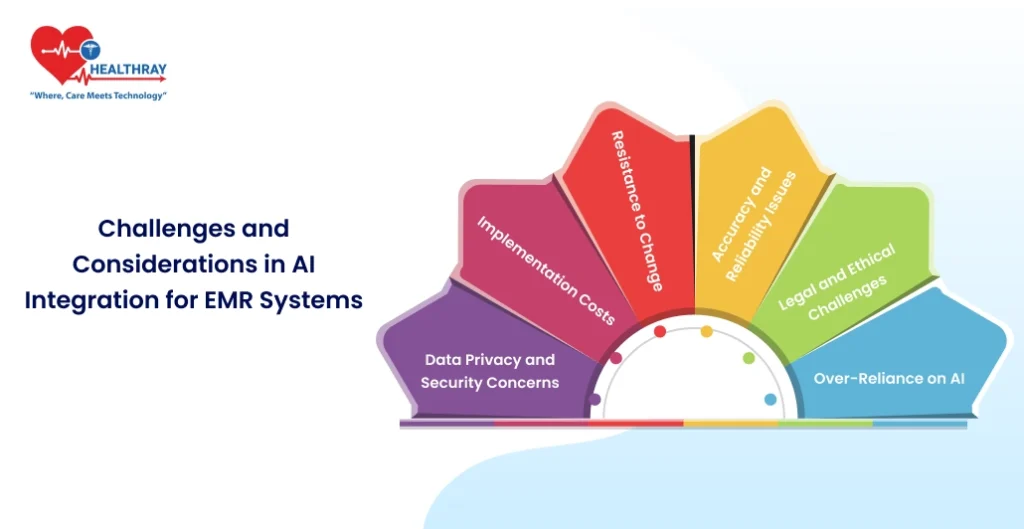
While AI promises to transform EMR systems, the journey isn’t without hurdles. Understanding these challenges is essential to make informed decisions and maximize the benefits of AI.
Data Privacy and Security Concerns
Healthcare data is highly sensitive, and integrating AI brings concerns about data breaches and unauthorized access. AI systems require vast amounts of patient data to learn and improve, which increases the risk of exposure. Ensuring compliance with privacy regulations like HIPAA and adopting robust cybersecurity measures is critical.
Implementation Costs
AI integration is not cheap. From acquiring advanced technologies to training staff and maintaining systems, costs can add up quickly. For smaller healthcare facilities, the financial burden of adopting AI-enhanced EMR systems might be a significant barrier.
Resistance to Change
Introducing AI can face resistance from healthcare providers and staff accustomed to traditional workflows. Many fear that AI might replace their roles or add complexity instead of simplifying tasks. Effective change management and proper training are vital to address these concerns.
Accuracy and Reliability Issues
AI systems are only as good as the data they are trained on. Errors in training data or biased algorithms can lead to inaccurate recommendations, jeopardizing patient safety. Ensuring that AI tools are thoroughly tested and regularly updated is essential for reliability.
Legal and Ethical Challenges
Using AI in EMR systems raises questions about accountability. For example, if an AI tool makes an incorrect recommendation, who is responsible? Balancing innovation with ethical considerations is a complex but necessary task for AI developers and healthcare providers.
Over-Reliance on AI
There’s a risk of healthcare professionals becoming overly dependent on AI systems, potentially compromising their critical thinking skills. It’s crucial to treat AI as a supportive tool rather than a replacement for professional judgment.
Case Studies and Real-World Applications of AI in EMR Systems
AI has already made remarkable strides in transforming EMR systems. Let’s explore some real-world examples to understand how it is reshaping healthcare operations and improving outcomes.
Streamlining Clinical Documentation
Hospitals and clinics using AI-powered transcription tools have reported significant reductions in physician workload. For instance, AI systems can convert voice recordings into structured EMR entries in real time. This not only saves time but also ensures that patient records are consistently updated with accurate details.
Predictive Analytics for Patient Care
AI algorithms are being used to analyze historical patient data to predict potential health issues. For example, some healthcare facilities use AI to flag patients at risk of readmission due to chronic conditions. This proactive approach enables early interventions and improves overall patient outcomes.
Enhanced Medical Coding and Billing
AI tools are simplifying medical coding, which can often be a tedious and error-prone process. By automating the assignment of billing codes based on clinical notes, these tools reduce errors, speed up reimbursement processes, and free up staff for other tasks.
Decision Support in Diagnostics
AI-powered decision support systems are assisting doctors by analyzing imaging data, lab results, and patient history to recommend diagnoses or treatments. For example, AI tools have been employed to identify anomalies in radiology images with a level of precision that matches or exceeds human experts.
Improved Patient Communication
Chatbots and virtual assistants powered by AI are helping patients interact with their healthcare providers more efficiently. From scheduling appointments to answering common questions, these tools bridge communication gaps and improve patient satisfaction.
Seamless Interoperability
AI-driven solutions are helping connect different EMR platforms, ensuring smoother data exchange across healthcare networks. This has been particularly valuable in emergency care, where having complete and up-to-date patient information can be life-saving.
Future Trends in AI and EMR Systems
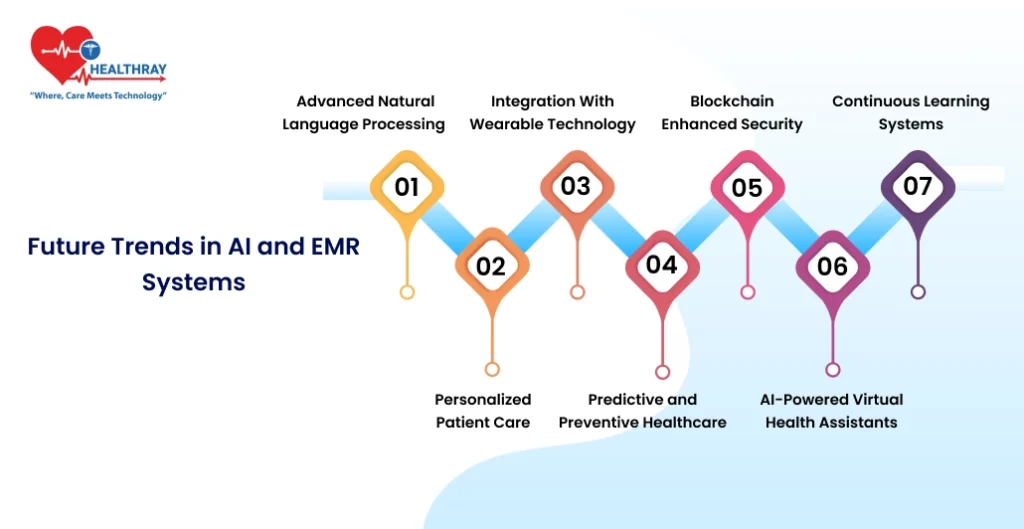
The integration of AI in the Electronic Medical Record System is just getting started. As technology evolves, we can expect even more groundbreaking advancements that will redefine how healthcare professionals manage medical records.
Advanced Natural Language Processing (NLP)
NLP tools are set to become more sophisticated, enabling AI systems to better understand and process unstructured data like clinical notes. This will improve data accuracy and make it easier for healthcare providers to extract meaningful insights from medical records.
Personalized Patient Care
AI will drive more personalized treatment plans by analyzing vast datasets, including genetic information, lifestyle habits, and medical histories. EMR systems will integrate these insights to support precision medicine, offering tailored care for each patient.
Integration with Wearable Technology
Wearable devices like smartwatches and fitness trackers generate valuable health data. Future EMR systems will seamlessly integrate this data using AI, providing healthcare providers with real-time updates on patient conditions and enabling timely interventions.
Predictive and Preventive Healthcare
AI-powered predictive models will identify at-risk patients earlier, allowing healthcare providers to focus on prevention rather than treatment. EMR systems will play a key role in tracking these predictions and automating follow-up care.
Blockchain-Enhanced Security
To address privacy concerns, blockchain technology may combine with AI to create tamper-proof systems. These systems will ensure secure sharing of patient data while maintaining transparency and control for patients and healthcare providers.
AI-Powered Virtual Health Assistants
Virtual assistants integrated into EMR systems will go beyond administrative tasks to actively support clinical decisions. These AI tools will assist in medication management, alerting providers about potential drug interactions or patient allergies.
Continuous Learning Systems
Future AI models will feature continuous learning capabilities, enabling them to evolve and adapt to new medical knowledge. This will keep EMR systems up to date with the latest research, guidelines, and treatment protocols without requiring frequent manual updates.
Conclusion
AI is revolutionizing the way medical records are managed, bringing efficiency, accuracy, and innovation to EMR systems. From streamlining administrative tasks to enhancing clinical decision-making, AI tools are reshaping healthcare for the better.
While challenges like data security and implementation costs exist, the potential benefits far outweigh the hurdles. With advancements in AI-driven tools and trends such as personalized care and integration with wearables, the future of Hospital Management Systems looks promising.
For healthcare professionals, IT consultants, and hospital administrators, the focus should be on strategic implementation and addressing the unique needs of their organizations. By doing so, they can unlock the full potential of AI in transforming healthcare delivery.
